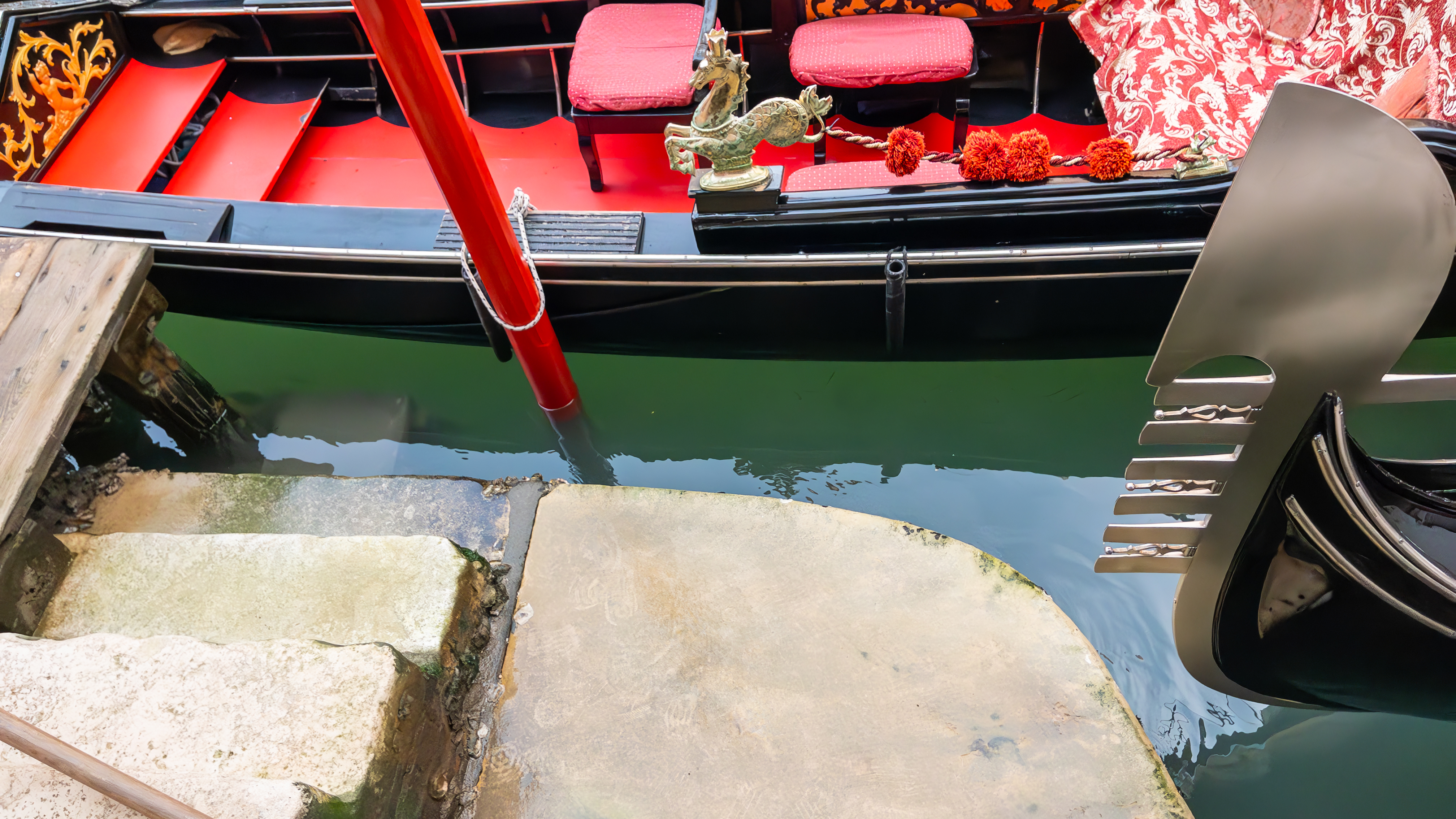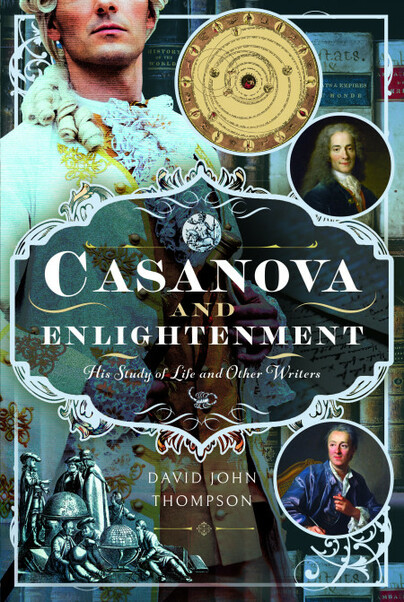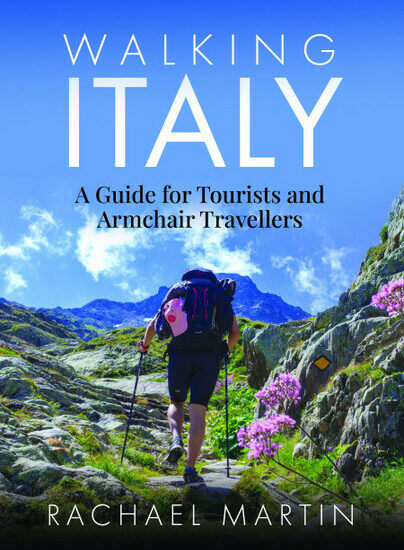Celebrating Casanova (1725 – 1798) – the tercentenary of his birth
Author guest post from David John Thompson.
Casanova was one of the most remarkable figures of eighteenth-century Europe. He achieved celebrity during his life but it was not because of his romantic exploits. Casanova the libertine was not an invention but the popular misconception of him as an exploitative womaniser is far from the truth. He did, in fact, possess a strong sense of a duty of care towards women, a duty which is illustrated repeatedly in his memoirs. Yes, he was a libertine, but on the whole quite a tender-hearted one.
Modern perceptions of Casanova have been shaped partly by distorted and salacious accounts of his life, often as much fiction as fact, which were circulated after his death, and partly by dramatic shifts in the moral landscape from the nineteenth century to today, resulting in attitudes about him which have become overly cynical. It is understandable for people to use the moral intuitions of their own age when trying to get a handle on the past but they can mislead. In many ways, the mindset of European populations in the eighteenth century had more in common with antiquity than today, whether that be to do with individual human rights, the roles of men, women and children, hierarchical violence, human biology, illness, the supernatural or the creation of the universe, to name but a few. Here is one specific example. In 1800, 63-year-old Sir John Acton married his brother’s eldest daughter, 13-year-old Mary-Ann. And with the blessing of the pope. To understand Casanova, particularly his relationships with women, you have to try to understand the psychology of his time.

Beyond his numerous love affairs, Casanova’s adventures were legion. He was a spy, gambler, cabalist, fraudster, indefatigable traveller, superb conversationalist, one of the founders of what at the time was the most successful lottery in Europe, the first man ever to escape from the prison of the Venetian Inquisition, and a financial agent on behalf of the French government. He fought at least nine duels, winning all of them, and escaped several assassination attempts. In addition, he trained to be a priest, became a soldier, was a violinist, an entrepreneur, translator, impresario and ascended to the rank of master mason.

Unsurprisingly, all of this has tended to distract attention from the fact that Casanova was a gifted writer and a man of letters who was steeped in learning and philosophy. Indeed, Casanova and Enlightenment makes the case that he belongs to the tradition of experimental moral philosophy that flourished during the eighteenth century. His most important work, his memoirs, he himself calls ‘a school of morality’. Running to almost 1,250,000 words, the memoirs have been described as an encyclopedia of life and society in eighteenth-century Europe. One of the most influential figures in Casanova’s life was Voltaire. To finish, here’s an extract from the chapter on Voltaire taken from Casanova and Enlightenment that gives some idea of Casanova’s interests and achievements:
The Venetian [Casanova] aspired to be recognised as a serious man of letters, and it was Voltaire against whom he sought to match himself. On the surface it might appear absurd to the point of delusional for Casanova to seek to rival this European colossus. Yet if he did fail to match Voltaire it was because Voltaire achieved so much not because Casanova achieved so little. By any other standard he was a considerable intellectual and literary figure.

Like Voltaire, Casanova was an accomplished writer across a wide range of genres, styles and topics including his memoirs, poetry, drama, science fiction, parody, essay writing, literary criticism, satire, philosophy, religion, mathematics and history. Like Voltaire, he was a pamphleteer and avid letter writer. In his last period of stay in Venice (1774-1783) he wrote his own monthly journal. He did not match the industrial scale of Voltaire but his output was pretty impressive nonetheless, in terms of both quantity and quality. His memoirs are recognised as one of the great works of European literature, skilfully crafted, and full of intelligence, humour and psychological insight. It is also a philosophical work: an examination of freedom and morality. In this respect it resembles Voltaire’s philosophical tales, such as Candide, which make use of character and narrative to explore questions about the nature of society and, indeed, reality as a whole. Readers of History of My Life are treated to a parade of folly and iniquity perpetrated by men and women from every walk of life, most notably the rich and powerful. Respectability, authority and the institutions of the state in this way are all subverted. Another monumental work (another philosophical tale) was Casanova’s five-volume science-fiction novel Icosameron (1788). In the Encyclopedia of Italian Literary Studies (2007), Mattia Begali notes: ‘With an imagination comparable to Jules Verne’s, Casanova foresaw the motorcar, the airplane, television and several other inventions that were not realised for more than a century.’11 In addition, he composed philosophical dialogues such as The Philosopher and the Theologian. He had his own European blockbuster, History of My Escape from the Prisons of the Republic of Venice, which made him a minor international celebrity and, according to Begali, was ‘one of the most engaging and suspenseful texts of eighteenth-century literature.’12 Like Voltaire, Casanova wrote histories, (notably History of the Polish Troubles, 1774) and in terms of the use of original sources and objectivity was arguably closer to the standards of modern historical scholarship than Voltaire, who found it difficult to avoid the urge to convey his own vision of the past. Polish historian Maciej Forycki describes Casanova as ‘a refined observer of political culture and the daily life of Polish elites in the 1760s … an incontestable erudite and philosopher, going completely against the current of widespread contemporary opinions on the subject of Poland’ and that included the opinions of Voltaire.13 He translated much of Homer’s Iliad – although a lack of financing meant he was unable to complete it – and, it would appear, he played a small part in Mozart’s production of Don Giovanni (1787).


Find titles by David John Thompson here.

